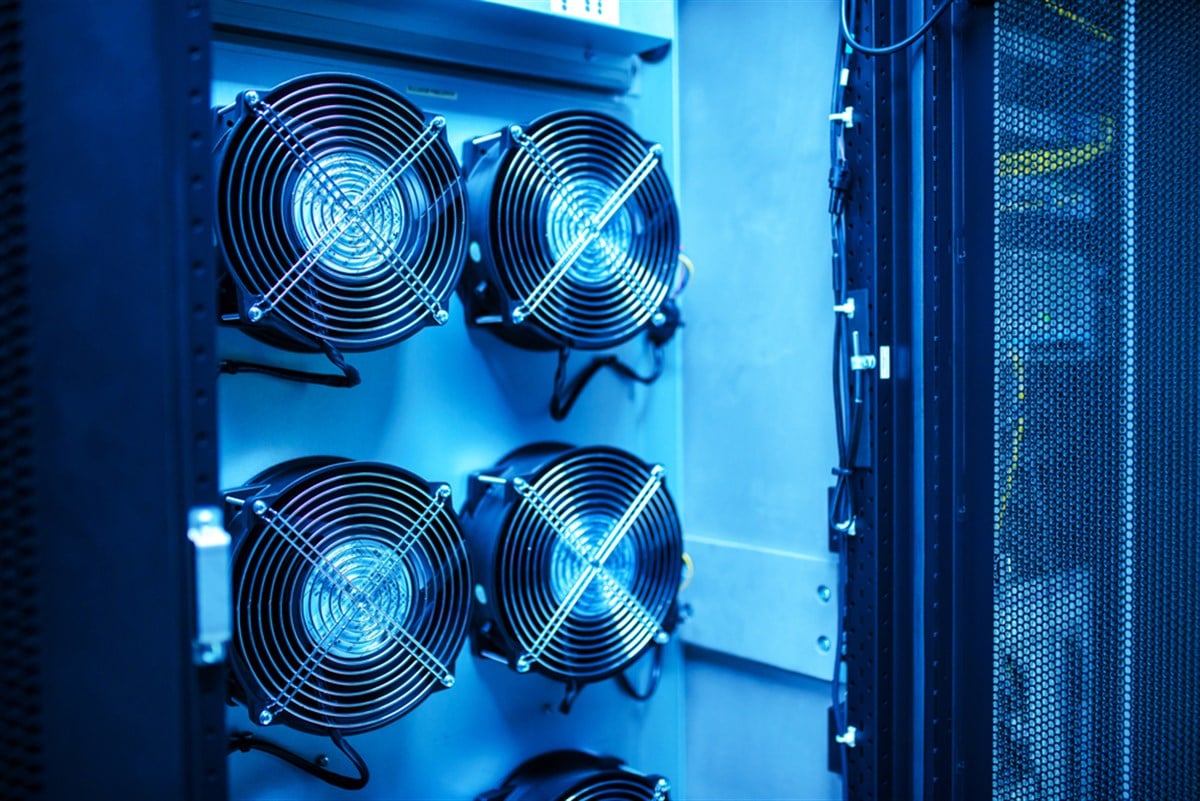
Intel Corporation (NASDAQ: INTC) and Shell plc (NYSE: SHEL) unveiled a technological collaboration on May 14, 2025, with Intel officially certifying Shell's immersion cooling fluids for use with its Xeon processors in data centers.
This development positions Shell's solution as the first from a major fluid provider to receive such endorsement from a leading chip manufacturer.
This initiative comes as Intel navigates a complex turnaround strategy, with this certification highlighting a commitment to enabling sustainable and efficient infrastructure for demanding applications like the increasingly processor-hungry artificial intelligence (AI) sector.
Why Data Center Cooling Is a Boiling Point
The collaboration between Intel and Shell targets a growing threat in digital infrastructure: the massive energy demands of modern data centers. Driven by the surge in AI workloads, global electricity consumption from data centers is expected to more than double by 2030, from 415 TWh in 2024 to about 945 TWh, according to the International Energy Agency. Cooling systems alone account for 30% to 40% of that load, making innovation in thermal management more urgent than ever.
At the heart of the Intel-Shell partnership is immersion cooling, which submerges servers in specially formulated, non-conductive liquids that absorb and dissipate heat far more efficiently than air. After a two-year trial at Intel’s Advanced Data Center Development Lab, Shell’s fluid has earned Intel’s certification for use with its processors.
To help encourage adoption, Intel is now offering an immersion rider warranty for Xeon processors used with Shell’s approved fluids. That removes a key obstacle for data center operators—fear of liability from CPU failures—and clears the way for broader use. While the partnership may look small on the surface, it’s part of Intel’s larger turnaround strategy. Industry forecasts suggest immersion cooling could make up 36% of the data center thermal management market by 2028.
Chilly Reception for Intel Despite Hot Tech
While the Intel-Shell certification represents a tangible technological step forward, the immediate reaction from the stock market towards the company’s news has been less than enthusiastic, if not outright negative.
[content-module:Forecast|NASDAQ: INTC]On the day of the announcement, Intel's stock price experienced a decline, trading around $21.64, down over 4% during intraday activity.
This continues a period of significant volatility and underperformance for the chipmaker. Despite a recent uptick in its year-to-date performance (up approximately 7.6% as of mid-May), the stock remains considerably off its 52-week high of $37.16 and closer to its low of $17.67.
Intel’s financial metrics present a mixed outlook that continues to fuel investor discussion, but the price-to-book ratio (P/B) of around 0.93 is definitely notable. This indicates the company's current market price is below the book value of its assets, which is often considered a sign of potential undervaluation. Intel’s analyst community’s sentiment remains predominantly cautious, with a consensus rating for Intel set at Reduce.
Skepticism, fueled by Intel’s Q1 2025 earnings and weak Q2 2025 guidance, continues to weigh on sentiment. For now, deeper financial and competitive concerns are overshadowing the positive momentum from its innovative cooling solution.
Finding Value in Intel's Innovations
Despite the current market indifference to specific technological advancements like the Shell cooling certification, these developments can be viewed as important building blocks within a longer-term bullish or contrarian value thesis for Intel. While not immediate drivers of earnings, such innovations signal Intel's continued commitment to addressing critical future technology needs and solving complex customer pain points, particularly in high-growth areas like AI infrastructure, where power efficiency is paramount. This specific collaboration demonstrates a proactive approach to ecosystem enablement by making Intel's Xeon platform more attractive and viable in increasingly power-constrained and sustainability-focused data center environments.
This aligns with CEO Lip-Bu Tan's stated emphasis on reinvigorating engineering excellence and pursuing strategic partnerships as core tenets of Intel's turnaround. While the company faces significant hurdles, a portfolio of such forward-looking solutions, combined with the successful execution of its ambitious manufacturing roadmap, could shift the prevailing market narrative over time.
For investors willing to look beyond immediate financial results and the current challenging guidance, the argument could be made that Intel's depressed valuation does not fully reflect the potential of these long-term initiatives. If the company can demonstrate tangible progress in its foundry ambitions, stabilize its core CPU market share, and continue to innovate in enabling technologies, the current stock price levels might, in retrospect, appear as an attractive entry point for those with a multi-year investment horizon.
A Quiet Step Forward, But Intel’s Marathon Continues
Intel's certification of Shell's immersion cooling fluids is a noteworthy technological advancement, addressing a pressing need for energy efficiency in the rapidly expanding data center and AI sectors. It underscores Intel's role in fostering an ecosystem prepared for next-generation computing demands and aligns with a corporate push towards sustainability.
This development, in isolation, offers a positive signal about Intel's engagement with future infrastructure challenges. However, for a company of Intel's scale and current predicament, the path to a comprehensive turnaround is a marathon, not a sprint.
While innovations like the Intel-Shell cooling initiative are constructive, investor focus remains on bigger priorities: the timely rollout of Intel 18A, competitive strength of upcoming client and data center products, progress in fixing its foundry losses and winning external customers, and a path back to sustained profitability. These remain the core pillars of the Intel investment case over the next several quarters.
Where Should You Invest $1,000 Right Now?
Before you make your next trade, you'll want to hear this.
MarketBeat keeps track of Wall Street's top-rated and best performing research analysts and the stocks they recommend to their clients on a daily basis.
Our team has identified the five stocks that top analysts are quietly whispering to their clients to buy now before the broader market catches on... and none of the big name stocks were on the list.
They believe these five stocks are the five best companies for investors to buy now...




